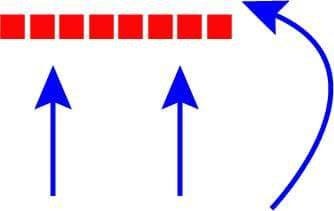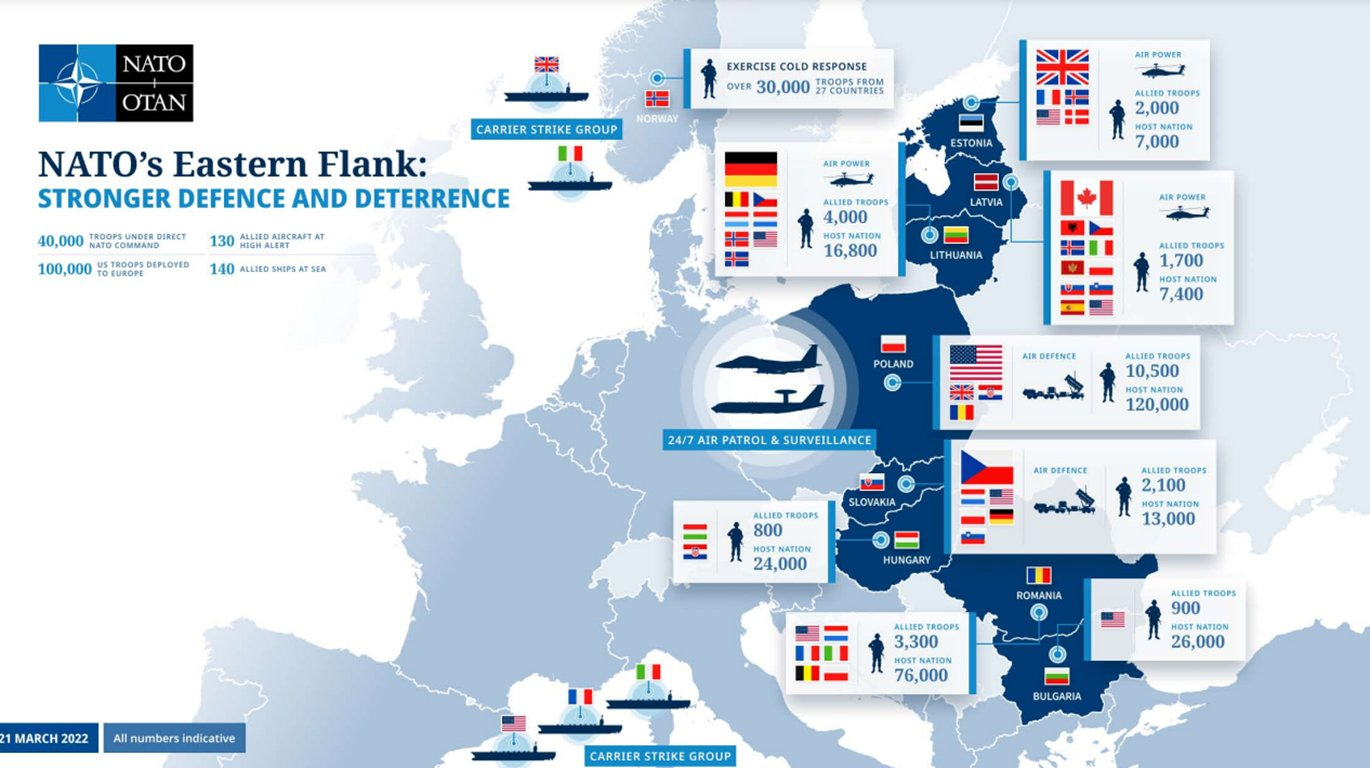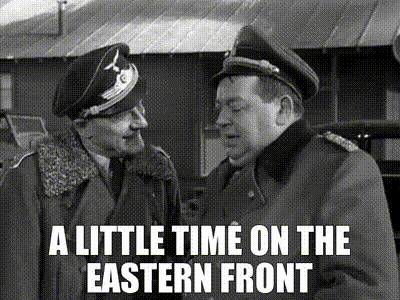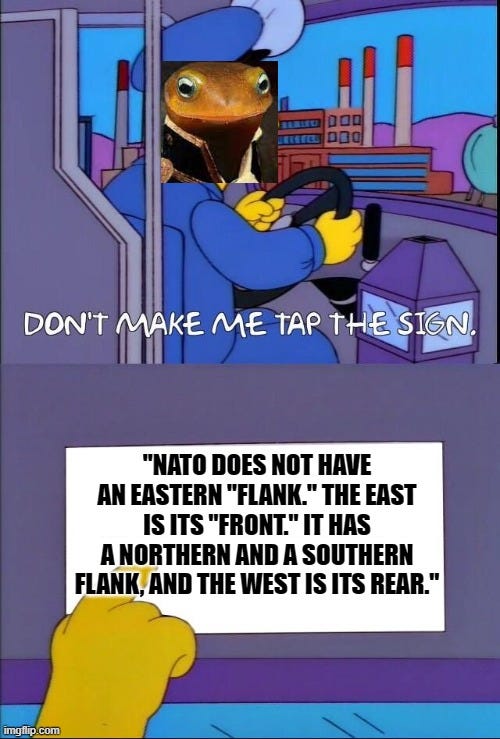Flank, Front, & the Importance of Language
you can't properly engage with something you can't define
This is another chance to bring a fun thread from X over here for those who have sanity enough not to spend too much time there.
With the NATO gathering in Washington DC, we are even more surrounded than usual by error.
Pre-dating the Russo-Ukrainian War, I have had a bone to pick with people who use the term, “Flank” as opposed to “Front” when referring to NATO’s east.
As I’ll outline, not only is this wrong, this is wrong for all the wrong reasons.
If you find yourself saying things like, "We have to put all our effort on the ____ flank" - then you have to understand the reality of the "flank" you are referring to is no longer a "flank" - it is your "front."
Instead of my usual meme, let's look at the Oxford Reference Essential Dictionary of the U.S. Military.
As everyone is misusing "Flank" - let's start there.
flank n.: the right or left side of a body such as an army or a naval force
So, if NATO has an eastern "flank" then is its "front" to the north or...south? Does there have to be a "front?" Of course there does, otherwise you cannot define a "flank." A "flank" - by its very definition - is referenced by the "front."
Now, let's look at that definition of "front."
front n.: 1 the foremost line or part of an armed ...force; the furthest position that an army has reached and where the enemy is or may be engaged
As another reference point, let’s peek at NATO’s approved terminology for these terms. As a good former NATO staff officer, I know where my AAP-06 & AAP-39 are and their terms that remain unchanged since approved in 1973.
Front: 1. When a combat situation does not exist or is not assumed, the direction toward which the command is faced. 2. The lateral space occupied by an element measured from the extremity of one flank to the extremity of the other flank.
NATO considers an understanding of a flank as something relative to the “front” that is does not even need to clearly define it, as it is self-evident. However, it does make it clear that even a stationary force has a front…that has flanks.
Flank Guard: A security element operating to the flank of a moving or stationary force to protect it from enemy ground observation, direct fire, and surprise attack.
Now, look at your nearest chart of Europe. Where is NATO "furthest position" towards a possible "enemy ...may be engaged?" It is to the east. Just look at NATO's own chart:
That does, of course, beg the question, "Why is NATO and most of The Smartest People in the Room™ using 'flank' all the time?"
Back in the day, I had a traveling road show where I did up to 2-weeks seminars in Operational Planning etc at NATO war colleges in four different nations. When you are dealing with a room with a dozen+ different primary languages, words and definitions mean things. So, why such an egregious departure from clear language, and centuries of doctrine?
On the funny side, it is because of certain nations' "sensitivity" to the phrase "Eastern Front" either because it gives them flashbacks to the stories Opa told, or it makes them giggle from a childhood watching 'Hogan's Heroes.'
The other reason is that the weak sisters are too afraid of hurting the Russians’ feelings or making them feel "unsafe" - and goodnessly goodness, we can't have a military alliance actually, well, sound excessively martial. They learned that as a Rhodes scholar, and while at the Harvard Kennedy School and Band Camp, so sit down.
Either explanation is inexcusable.
I’m not alone in this regard either. Over the weekend, James Robbins over at the National Security Journal put it cleanly out there;
Those who refer to Ukraine as being on NATO’s “eastern flank” are mistaken; Ukraine is not a flank but on NATO’s traditional front. The Alliance has always been Moscow-facing, whether confronting Warsaw Pact forces or the current beleaguered but stubborn Russian military.
Words matter. Clarity matters. Feelings are for unserious people.
Oh, you're going to get my meme anyway.








As a former NAVEUR/SIXTHFLT and STRKFOR NATO bubba, I am partial to a perspective that Europe, when viewed thru a maritime lens, is simply a very large peninsula. Notwithstanding, Sal, absolutely concur!
Godspeed and Good Hunting Y’all!
During World War II, my mother followed the action closely, especially what was happening in Europe after D Day. She was fearful that the broad front strategy being folllowed in the fall of 1944 might result in a war of attrition in the mode of World War I.
She grew up in a household in the 1920s and 1930s where my grandmother was an ardent isolationist and my grandfather was a liberal arts professor at a small Montana technical college teaching economics, history of civilization, military history, and European history.
My aunt was an ardent internationalist at the time. My grandfather was more or less neutral but clearly recognized in 1938 that Hitler intended to refight World War I using modern technology and tactics. Much discussion occurred in that household in the late 1930s concerning where the world was headed and what role America should be playing in unfolding events.
During the war, my mother taught English and history in a small rural town in Montana. Everyone in that small town and most all of the students in its small schools had an appreciation for world geography, for world events, and for the political and social issues of the time which far exceeds anything we see today in either the teachers or their students.
In World War II and thereafter, my mother, my aunt, my grandparents, and most all the students they were teaching knew the difference between a front and a flank.